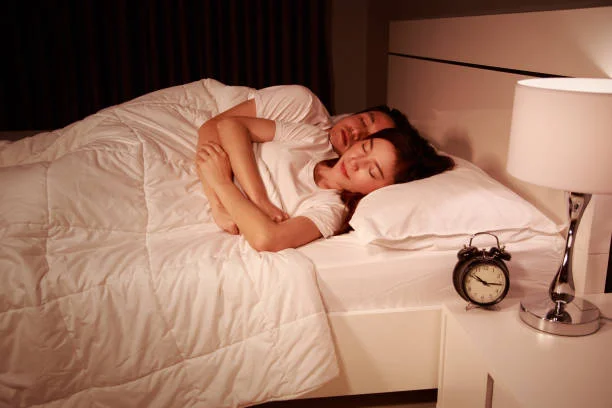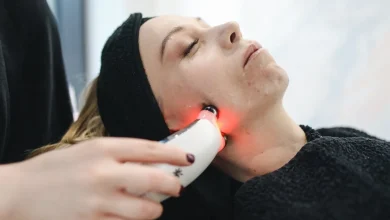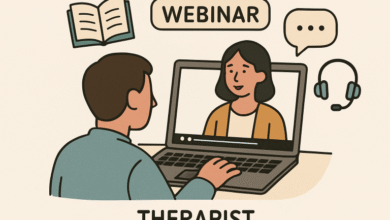How To Sleep Better At Night Naturally?

Tossing and turning all night? Staring at the ceiling at 3 AM? You’re not alone. Millions struggle with poor sleep, and it’s affecting everything from your mood to your productivity. Quality sleep is essential for physical health, mental clarity, and emotional well-being for Sleep Better At Night Naturally. Poor sleep weakens your immune system, increases stress, and raises the risk of chronic diseases. The good news? Natural approaches can transform your nights without relying on prescription medications.
Did you know?
Adults who sleep fewer than 7 hours per night are 3 times more likely to develop a cold than those who sleep 8+ hours. Your body literally heals while you sleep.
Natural sleep improvement focuses on lifestyle changes, environment optimization, and healthy routines. Sleep supplements like melatonin and magnesium can support these efforts as part of a holistic approach. When combined with good sleep habits, these natural tools help you fall asleep faster and stay asleep longer.
Common Causes of Poor Sleep
Poor sleep rarely has just one cause. Multiple factors often work together to disrupt your rest.
Stress, Anxiety, and Lifestyle Factors
Stress is the #1 sleep thief. When your mind races with worries about work, finances, or relationships, your body stays in fight-or-flight mode. This floods your system with cortisol, making it nearly impossible to relax.
Modern lifestyle habits compound the problem:
- Working irregular hours disrupts your natural rhythm
- Excessive screen time suppresses melatonin production
- Lack of physical activity leaves energy unspent
- Poor diet choices cause blood sugar crashes at night
Dive deeper into the topic — this related post reveals hidden connections.
Environmental Influences
Your bedroom environment plays a massive role in sleep quality. Light pollution from streetlights, electronics, and even your alarm clock tells your brain it’s daytime. Noise from traffic, neighbors, or a snoring partner triggers micro-awakenings throughout the night.
Temperature matters more than you think. Rooms warmer than 70°F can reduce the amount of time your body spends in deep sleep. Your core temperature naturally drops at night, and a warm room fights this biological process.
Poor Sleep Habits
Inconsistent sleep schedules confuse your internal clock. Going to bed at midnight on weekdays and 2 AM on weekends creates “social jet lag.” Your body never knows when to produce sleep hormones.
Other sleep-destroying habits include:
- Napping too late in the day
- Exercising within 3 hours of bedtime
- Eating heavy meals close to sleep time
- Using your bed for work or watching TV
These patterns train your brain that bed isn’t for sleeping.
Natural Tips for Sleeping Better
Improving sleep naturally requires a multifaceted approach. Here’s what actually works.
Optimize Your Sleep Environment
Your bedroom should be a sleep sanctuary. Start with these changes tonight.
- Block out light and minimize noise: Invest in blackout curtains or a quality sleep mask. Light exposure suppresses melatonin by 50% or more. For noise, try earplugs, white noise machines, or a simple fan.
- Maintain a cool, comfortable temperature: Set your thermostat between 60-67°F. This temperature range supports your body’s natural temperature drop during sleep. Cooler temperatures are linked with deeper, more restorative sleep.
- Reserve the bed for sleep and intimacy only: Remove TVs, laptops, and work materials from your bedroom. This mental association helps your brain recognize bed as a sleep space.
Pro Tip:
Even dim light from electronics can disrupt sleep. Cover or remove all light-emitting devices from your bedroom, including phone chargers and digital clocks.
Build Healthy Daily Routines
What you do during the day directly impacts nighttime sleep quality.
- Get natural light exposure in the morning: Step outside within 30 minutes of waking. Morning sunlight helps reset your circadian rhythm and supports healthy nighttime melatonin production. Just 15 minutes makes a difference.
- Exercise regularly, but not before bedtime: Regular physical activity significantly improves sleep quality and helps you fall asleep faster. Aim for at least 30 minutes daily, but finish workouts 3+ hours before bed. Late exercise raises core temperature and adrenaline.
- Eat dinner at least a few hours before bed: Large meals require 3-4 hours for digestion. Eating too late causes acid reflux and discomfort that disrupts sleep. Time your last meal for 6 PM or earlier when possible.
Evening Rituals That Support Sleep
The hour before bed sets the tone for your entire night.
Relax and disconnect from electronics before bed: Blue light from screens suppresses melatonin for up to 3 hours. Power down phones, tablets, and computers 60-90 minutes before sleep. Use blue light filters if you must use devices.
Engage in calming activities: Try these instead:
- Meditation or deep breathing exercises
- Reading physical books (not screens)
- Gentle yoga or stretching
- Taking a warm bath
These activities lower your heart rate and activate your parasympathetic nervous system.
Note: Avoid caffeine, alcohol, and nicotine in the hours before sleep: Caffeine has a 6-hour half-life, so that a 4 PM coffee affects midnight sleep. Alcohol might make you drowsy initially but fragments sleep in the second half of the night. Nicotine is a stimulant that increases heart rate and alertness.
Practical Ways to Calm Your Mind Before Sleep
Racing thoughts are sleep’s biggest enemy. Here’s how to quiet your mind.
- Techniques for winding down and releasing anxiety: Progressive muscle relaxation works by tensing and releasing each muscle group. Start with your toes and work up to your head. This releases physical tension and mental stress simultaneously.
- The value of journaling or guided mindfulness before bed: Spend 10 minutes writing down worries and tomorrow’s tasks. This simple “brain dump” helps clear mental clutter and reduce nighttime rumination. Guided mindfulness apps provide structured relaxation when your mind won’t quiet on its own.
Imp Check: Try the 4-7-8 breathing technique: Inhale for 4 counts, hold for 7, exhale for 8. This activates your vagus nerve and triggers relaxation responses.
Smart Napping and Consistent Sleep Schedules
Timing matters as much as total sleep hours.
- Nap wisely: Short naps (20-30 minutes) before 3 PM boost alertness without affecting nighttime sleep. Longer naps or late-day sleeping disrupts your sleep drive. If you struggle with insomnia, skip naps entirely until your nighttime sleep improves.
- Go to bed and wake up at the same times daily: Consistency trains your circadian rhythm. A regular schedule increases sleep efficiency by up to 30%. Yes, this means setting weekend alarms, but your body will thank you.
Pro Tip:
If you must adjust your sleep schedule, shift it by only 15-30 minutes per night to avoid jet lag symptoms.
The Role of Sleep Supplements
Sleep supplements can support natural sleep when used correctly alongside healthy habits.
Overview of Popular Sleep Supplements: Melatonin, Magnesium, Valerian Root
Melatonin is your body’s natural sleep hormone. Supplemental melatonin (0.5-5mg) signals your brain that it’s time to sleep. It’s most effective for jet lag and shift work Sleep Better At Night Naturally.
Magnesium relaxes muscles and calms the nervous system. About 50% of adults are magnesium-deficient, which contributes to poor sleep. Magnesium glycinate (200-400mg) works best for sleep support.
Valerian root has been used for centuries as a natural sedative. Studies show it may reduce sleep onset time by 15-20 minutes. Effects build over 2-4 weeks of consistent use.
Other helpful supplements include:
- L-theanine for relaxation
- Glycine for body temperature regulation
- Chamomile for its gentle calming effects
How and When to Use Sleep Supplements Naturally
Take sleep supplements 30-60 minutes before your target bedtime. Start with the lowest effective dose and adjust gradually. Consistency matters more than dosage; taking supplements at the same time nightly works better than sporadic use.
Combine supplements with sleep hygiene practices. They work best when you’ve also optimized your environment, schedule, and evening routine. Supplements support sleep but don’t replace foundational habits. Cycle supplements if you use them long-term. Take 2-3 nights off per week to prevent dependency. This also helps you assess whether the supplement is still needed Sleep Better At Night Naturally.
Risks, Benefits, and When to Consult a Provider About Supplements
Benefits include:
- Faster sleep onset
- Improved sleep quality
- Non-habit forming when used properly
- Fewer side effects than prescription medications
Risks to consider:
- Drowsiness the next morning (with higher doses)
- Interactions with medications
- Variable quality between brands
- Not regulated as strictly as pharmaceuticals
Consult a healthcare provider before starting sleep supplements if you:
- Take prescription medications
- Have chronic health conditions
- Are you pregnant or breastfeeding
- Experience symptoms of sleep disorders
A professional can identify underlying issues that supplements won’t fix, such as sleep apnea or restless leg syndrome for Sleep Better At Night Naturally.
When Professional Help Is Needed
Sometimes natural approaches aren’t enough. Recognizing when to seek help prevents years of unnecessary suffering.
Signs and symptoms of chronic sleep issues include:
- Taking longer than 30 minutes to fall asleep most nights
- Waking multiple times nightly for months
- Snoring loudly with breathing pauses
- Excessive daytime sleepiness despite adequate sleep time
- Restless legs or periodic limb movements
- Persistent insomnia lasting 3+ months
These symptoms suggest sleep disorders requiring medical diagnosis. Sleep apnea, narcolepsy, and chronic insomnia respond best to targeted treatment, not just lifestyle changes.
The value of sleep clinics and medical support
Sleep specialists use overnight studies to diagnose disorders accurately. Treatments might include CPAP machines for apnea, cognitive behavioral therapy for insomnia, or medication when appropriate. Don’t wait years to seek help. Untreated sleep disorders increase the risk of heart disease, diabetes, and mental health issues. Early intervention produces better outcomes.
Takeaway
Better sleep starts with understanding what’s disrupting your rest and taking action. Natural approaches, optimizing your environment, building healthy routines, managing stress, and maintaining consistent schedules form the foundation of quality sleep.
Sleep supplements like melatonin, magnesium, and valerian root can support these efforts when used wisely. They’re tools, not magic pills. Combined with the strategies in this guide, they help your body return to its natural sleep rhythm. Your journey to better sleep deserves premium support. If you’re exploring natural wellness brands, anatomē offers thoughtfully formulated products that work with your body’s natural rhythms. Their sleep-supporting range combines science-backed ingredients with the purity of nature.
From calming essential oil blends to carefully crafted supplement formulations, every anatomē product is designed to enhance your wellbeing naturally. They believe better sleep shouldn’t come from harsh chemicals or habit-forming solutions. It should come from supporting what your body already knows how to do.
Give it a try, as they are really good!
FAQs
What are the best natural remedies to help you sleep better?
Practicing good sleep hygiene, getting regular exercise, using meditation to reduce stress, and trying herbal supplements or essential oils like melatonin, lavender, and magnesium can all help improve sleep quality. Combining multiple approaches produces the best results.
How can I fall asleep faster using natural methods?
You can fall asleep faster by establishing a regular bedtime, limiting screen time before bed, and relaxing with deep breathing or meditation. Keeping your bedroom cool, dark, and quiet also helps signal your brain that it’s time to sleep.
Do sleep supplements work for improving natural sleep?
Many people find that supplements like melatonin, magnesium, and valerian can support better sleep, but their effectiveness varies. Individual responses differ, so it’s best to consult a healthcare provider before using them regularly.
What foods can help me sleep better at night?
Cherries, dairy, bananas, and nuts are rich in melatonin and magnesium and are known to support better sleep. These foods work best when eaten as part of a light evening meal 2-3 hours before bedtime.
Which habits should I avoid to sleep naturally at night?
Avoid caffeine, alcohol, heavy meals, and screen usage before bedtime, as these can all disrupt natural sleep processes. Late-day napping and irregular sleep schedules also interfere with your body’s natural sleep rhythm.
Expand your horizon — explore more insights crafted for curious minds like yours.




